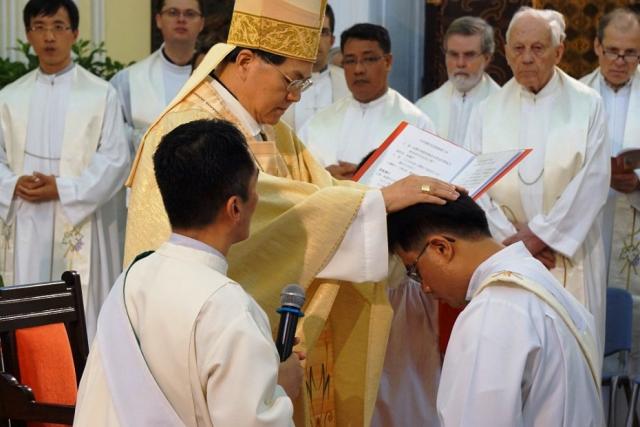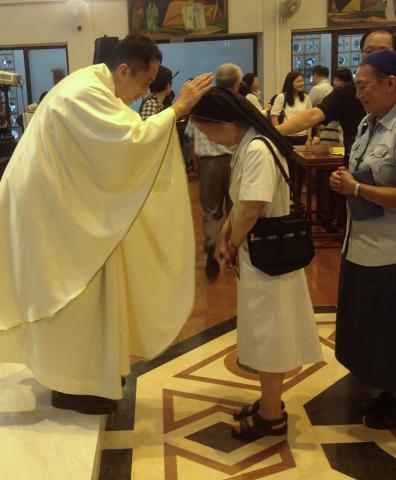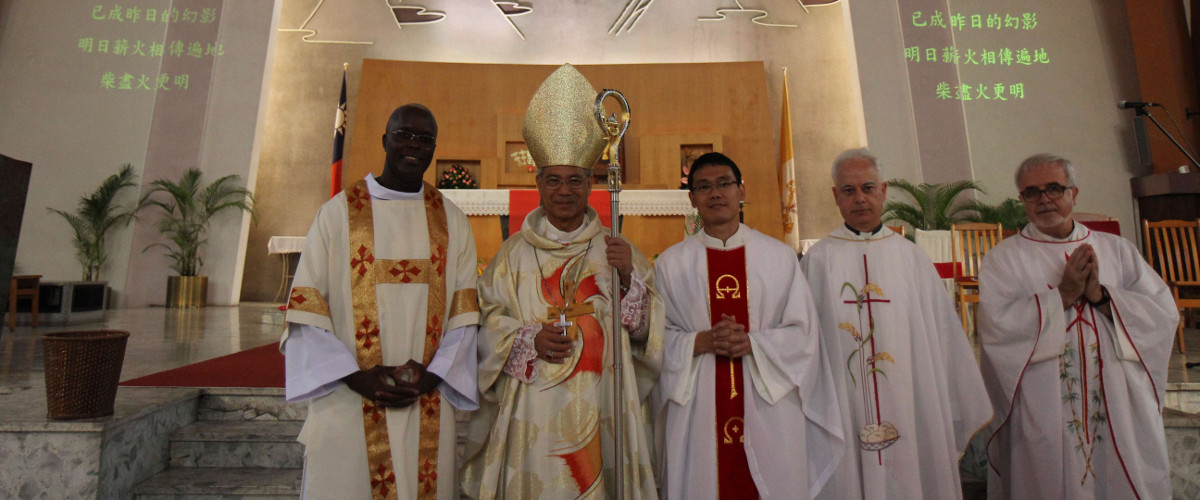From May to August, the Chinese Jesuit Province saw four Jesuits from three countries ordained to the priesthood in ceremonies held in its four territories. A Jesuit from Burundi was also ordained to the diaconate during this period.
John Joseph Zhang SJ was ordained priest in northern China during the Easter Season. He has been assigned to Casa Ricci Social Services in Macau.

On July 18, Filipino Jesuit Chrysostom Exaltaction was ordained by Most Reverend John B Hung, Archbishop of Taipei. He joined the Jesuit Chinese Province’s international Regency in 2009 and spent two years learning Chinese in Beijing and one year of service in Taiwan. He studied theology in the Fu Jen Faculty of Theology of St Robert Bellarmine in Taiwan. He is now in the United States to work on a Licentiate in Sacred Theology (STL).

Finally, Fr Clement Tsui SJ was ordained on August 22 by His Eminence John Cardinal Tong, Bishop of Hong Kong in St Ignatius Chapel in Wah Yan, Kowloon, Hong Kong. Fr Tsui joined the Society of Jesus in Hong Kong in 2005. He is currently in Berkeley, California, United States for graduate studies. When he has attained his master’s degree, Fr Tsui will serve as chaplain at Wah Yan College Hong Kong and in its youth ministry.
Main photo: Fr Chrysostom Exaltacion SJ and Deacon Ladislas Nsengiyumva SJ pose for a photo with Archbishop John Hung, Fr Luciano Morra SJ, the Socius to the Provincial of the Jesuit Chinese Province, and Fr Jacques Duraud SJ, Rector of St Robert Bellarmino Jesuit Community (Theologate).







